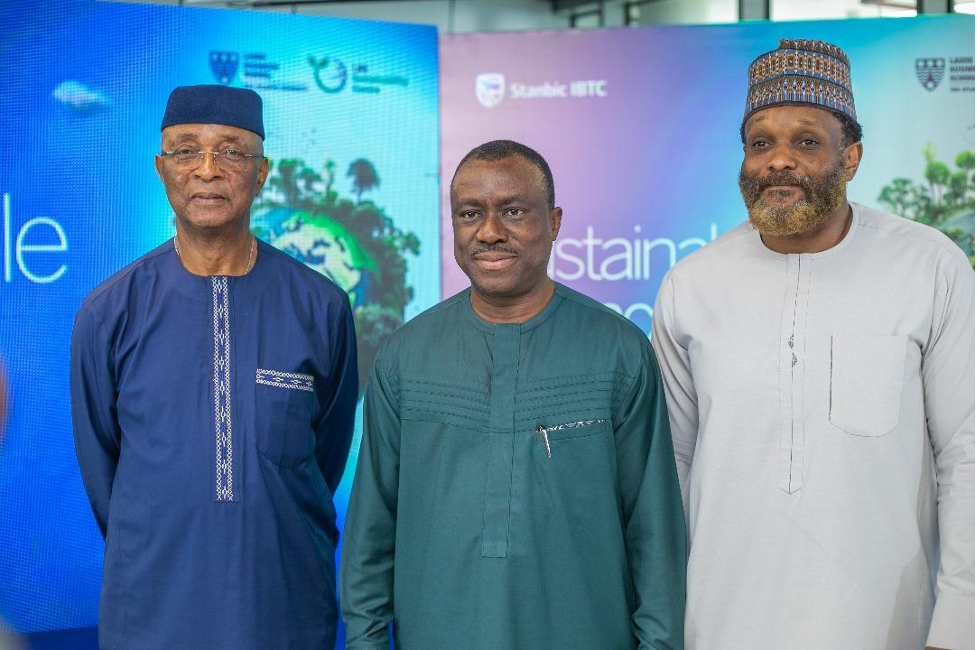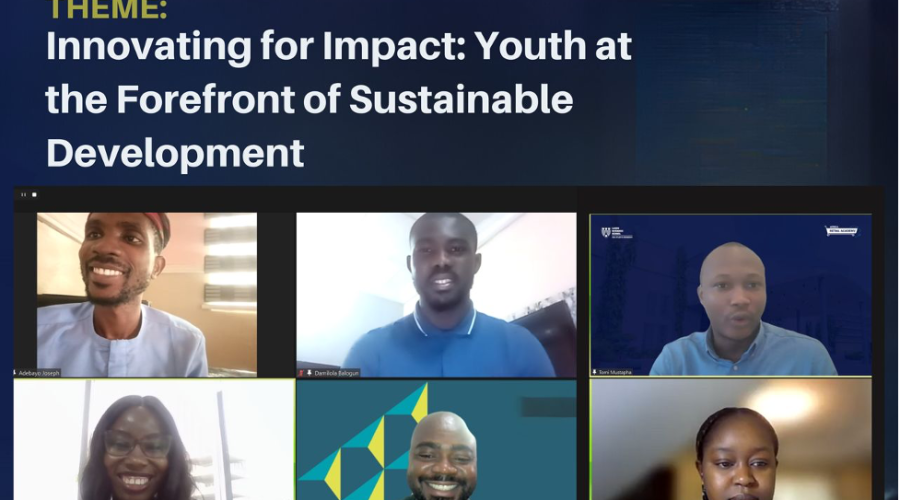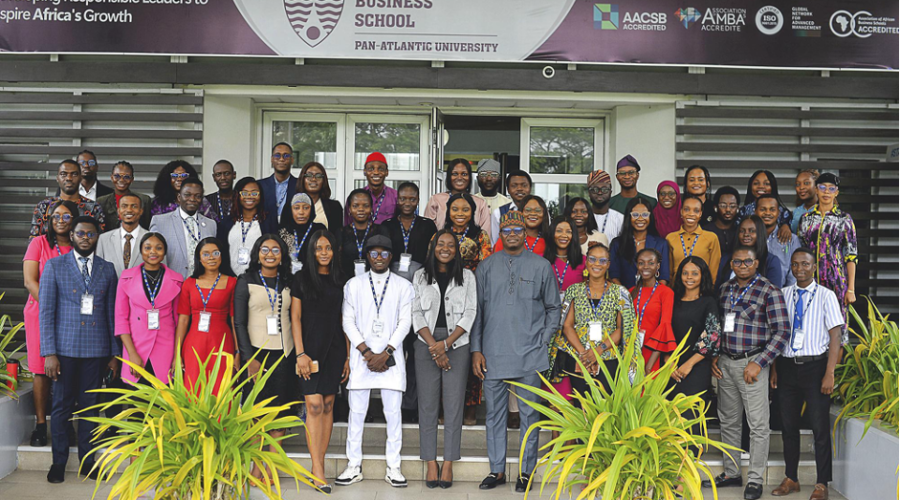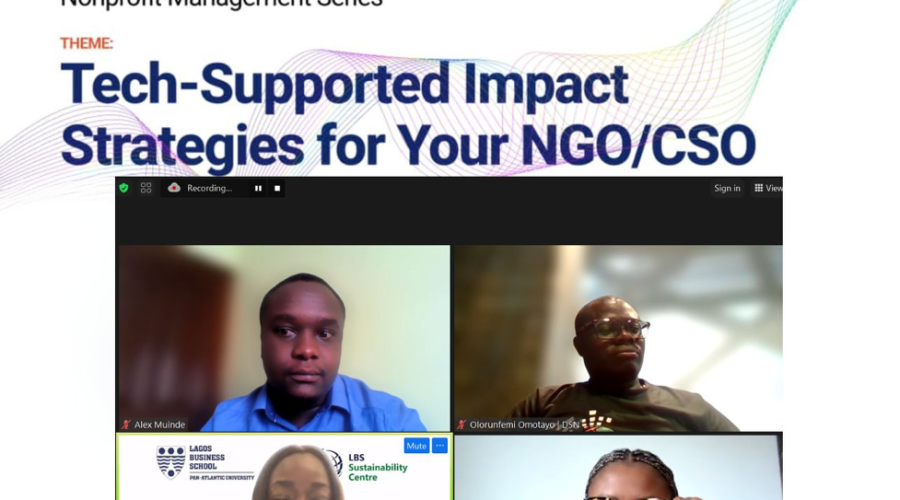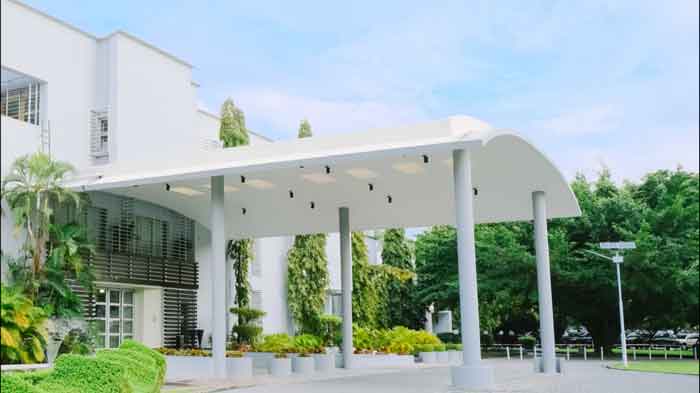L-R: Prof Chris Ogbechie, Dean. Lagos Business School (LBS); Dr Demola Sogunle, CEO, Stanbic IBTC Holdings; and Mr Mohammed Aliyu, Country Officer, International Finance Corporation (IFC)
Stanbic IBTC Holdings, in collaboration with Lagos Business School Sustainability Centre, recently hosted the Sustainable Finance Summit themed ‘Sustainable Finance Opportunities in Emerging Markets’ at Stanbic IBTC Towers, Victoria Island, Lagos. The event, which was held on Friday, September 27, 2024, was a convening of financial sector players, development sector professionals, sustainability professionals, and the academia, across Nigeria to dialogue on how sustainable finance can be unlocked, mobilised and scaled to create sustainable investments to advance the sustainable development agenda of the continent.
The summit provided a unique opportunity for high-level business executives to engage and discuss challenges, opportunities and pathways for sustainable investments; to create economic, environmental and social value for businesses and communities on the continent. The event featured remarks, a keynote, a fireside chat and panel discussions from seasoned industry leaders, who shared practical perspectives on unlocking sustainable finance opportunities in a way that benefits not just businesses, but also communities, ecosystems, and the planet.
Demola Sogunle, CEO, Stanbic IBTC Holdings, delivered the welcome remarks. “As we navigate a rapidly changing world, the importance of sustainable practices has never been more evident. At Stanbic IBTC, we believe that financial institutions play a crucial role in driving sustainable development.” He added, “Our commitment to sustainability is reflected in one of our recent initiatives – sustainable finance framework. It is worthy to note that from the inception of this framework in October 2023 till date, our sustainable finance portfolio is currently at N82bn representing nearly 5% of our loan portfolio and surpassing our 2025 target of N48bn. This framework has already guided investments in various sectors, including healthcare, education, and renewable energy. The challenges are real, but so are the opportunities. By working together, we can create a more sustainable and prosperous future for emerging markets.”
Prof Chris Ogbechie, Dean, Lagos Business School, declared the summit open. He said, “Our continent is perceived to have been synonymous with various developmental challenges across environmental, social and economic lines. The challenges demand that we prioritise investments that have the potential for environmental and socio-economic value creation for the continent and its people. Unarguably, no other sector and industry has this burden placed squarely on its shoulders like the financial services sector and no other continent has these opportunities in abundance for sustainable finance investors to tap into like Africa. Little wonder the theme for this summit is apt.
 Cross-section of speakers and panellists at the Summit. L-R: Kingsley Nnadozie, Ag. Head, Environmental & Social, and Risk Governance, Stanbic IBTC Holdings; Bernard Orji, Partner and Chief Growth Officer, Deloitte West Africa; and Jonathan Ikeolumba, Research Scholar, LBS Sustainability Centre; Tosin Leye-Odeyemi, Head, Sustainability, Risk and Capital Management, Stanbic IBTC Holdings; Jumoke Ayo-Famisa, Senior Vice President, Stanbic IBTC Infrastructure Fund; Monjola Adeboye, Sustainability Analyst, Stanbic IBTC Holdings; Mohammed Aliyu, Country Officer, IFC; Demola Sogunle, Chief Executive, Stanbic IBTC Holdings; Ezinne Anosike, Country Head, People and Culture, Stanbic IBTC Holdings; John Akuoko-Tawiah, Head, Sustainable Finance, KPMG Africa; Etemore Glover, CEO, Impact Investors Foundation; Kunle Adedeji, Chief Finance and Value Management Officer, Stanbic IBTC Holdings; Kome Ajegbo, Vice President, Product Solutions and Sustainability, Africa Finance Corporation; Opeyemi Ogunkoya, Team Lead Sustainability, Stanbic IBTC Holdings; and Uyi Uhunwangho, Compere of the event and Head, Legal and Dispute Resolution, Stanbic IBTC Holdings.
Cross-section of speakers and panellists at the Summit. L-R: Kingsley Nnadozie, Ag. Head, Environmental & Social, and Risk Governance, Stanbic IBTC Holdings; Bernard Orji, Partner and Chief Growth Officer, Deloitte West Africa; and Jonathan Ikeolumba, Research Scholar, LBS Sustainability Centre; Tosin Leye-Odeyemi, Head, Sustainability, Risk and Capital Management, Stanbic IBTC Holdings; Jumoke Ayo-Famisa, Senior Vice President, Stanbic IBTC Infrastructure Fund; Monjola Adeboye, Sustainability Analyst, Stanbic IBTC Holdings; Mohammed Aliyu, Country Officer, IFC; Demola Sogunle, Chief Executive, Stanbic IBTC Holdings; Ezinne Anosike, Country Head, People and Culture, Stanbic IBTC Holdings; John Akuoko-Tawiah, Head, Sustainable Finance, KPMG Africa; Etemore Glover, CEO, Impact Investors Foundation; Kunle Adedeji, Chief Finance and Value Management Officer, Stanbic IBTC Holdings; Kome Ajegbo, Vice President, Product Solutions and Sustainability, Africa Finance Corporation; Opeyemi Ogunkoya, Team Lead Sustainability, Stanbic IBTC Holdings; and Uyi Uhunwangho, Compere of the event and Head, Legal and Dispute Resolution, Stanbic IBTC Holdings.
He added, “Across the globe, we see some progress made by the Sustainable Banking and Finance Network (SBFN), in their effort to align sustainable finance frameworks and elevate the voice of emerging markets on the international stage. It is instructive that while SBFN on the global stage continues to lead the charge in advancing sustainable finance frameworks that are inclusive, transparent, and aligned with national development priorities and international trends, Africa should not be left behind.”
The keynote was delivered by Mohammed Aliyu, Country Officer, International Finance Corporation (IFC). He indicated, “ The path ahead is clear. By embracing sustainable finance, we can unlock Africa’s vast potential in renewable energy and carbon sequestration while addressing our pressing climate challenges. This is not just an environmental imperative but an economic opportunity that can drive growth, create jobs, and facilitate a just transition to a low-carbon future. He added, “As we move forward, collaboration between the public and private sectors will be crucial. We must mobilise resources, develop supportive policies, and create an enabling environment for sustainable investments. The future of Africa – and indeed, the world – depends on the actions we take today. Let us seize this opportunity to build a more resilient, sustainable, and prosperous Africa through the power of sustainable finance.”
The first-panel session threw more light on ‘Policy and Regulatory Support Required to Advance Sustainable Finance in Nigeria’ and the second was an interactive session with members of the press to share insights and clarifications on sustainable finance opportunities, risks and investments on the continent. The fireside chat with Etemore Glover, CEO, Impact Investors Foundation, was moderated by Dr Franklin Ugwu, Faculty, Lagos Business School. The fireside chat dwelt on how to design impact around opportunities, tracking and reporting impact investments, how policy enables impact investments, and giving national narratives to accelerate impact investments and sustainable finance on the continent. Jonathan Ikeolumba, LBS Sustainability Centre Research Affiliate, gave the summary of learnings and call to action, charging organisations and financial services sector players to deploy sustainable finance to drive growth and impact across key focus and growth areas on the continent.
Overall, industry leaders at the summit agreed on the need to localise solutions, integrate financial innovations such as blended finance and collaborate with key multi-sectoral stakeholders to unlock the economic, social and environmental value that sustainable finance holds for the future of the continent. Tosin Leye- Odeyemi, Head, Sustainability, Risk and Capital Management, Stanbic IBTC Holdings, closed the summit with her remarks. “We’ve heard today about the incredible opportunities that exist in areas such as renewable energy, climate-resilient infrastructure, green, social, gender and even blue bonds. We’ve also discussed the barriers that need to be overcome – whether regulatory, financial, or operational – to fully tap into the potential of these markets. But more importantly, we’ve recognised that through collaboration and innovation, we can overcome these challenges.
She added, “It is clear that sustainable finance is no longer a niche consideration. It is central to the future of the global financial system, and it is the pathway to long-term resilience and prosperity. The conversations we have had today underscore that financial institutions, policymakers, and businesses all have a crucial role to play in aligning economic growth with sustainability goals. As we move forward, let us take with us the realisation that sustainable finance is about more than just managing risk or meeting regulatory requirements. It is about creating value—economic value, social value, and environmental value. It is about future-proofing our economies and making them more inclusive, resilient, and sustainable.”
 Cross section of LBS Sustainability Centre and Stanbic IBTC Holdings Sustainability team members with CEO, Stanbic IBTC in middle, Dr Demola Sogunle.
Cross section of LBS Sustainability Centre and Stanbic IBTC Holdings Sustainability team members with CEO, Stanbic IBTC in middle, Dr Demola Sogunle.
Lagos Business School is Africa’s leading management education institution and the LBS Sustainability Centre is a globally recognised knowledge hub that brings together the theory and practice on business and sustainability for the advancement of business performance and development outcomes. For more information about the initiatives and upcoming events by the Lagos Business School Sustainability Centre, please contact sustainabilitycentre@lbs.edu.ng. Together we can work towards a sustainable future for businesses on the continent. See our programmes at https://lbssustainabilitycentre.edu.ng/training
Stanbic IBTC Holdings is a financial service holding company in Nigeria with subsidiaries in Banking, Stock Brokerage, Investment Advisory, Asset Management, Investor Services, Pension Management, Trustees Insurance Brokerage and life Insurance businesses. Stanbic IBTC Holdings is a member of the Standard Bank Group, a financial services giant based in South Africa. Standard Bank is Africa’s largest banking group ranked by assets and earnings, with operations in 20 African countries and 13 countries outside Africa. For more information on holding company’s sustainable finance activities, Visit stanbicibtc.com or contact opeyemi.ogunkoya@stanbicibtc.com.

